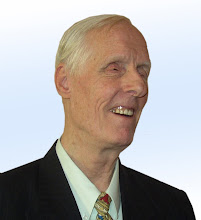
Handel's "Messiah" is somewhat unique among his several oratorios in that all recitative-aria sequences are scored for the same voice. For example, the recitative "Comfort Ye, My People" and the ensuing aria "Every Valley Shall Be Exalted" are sung by a tenor. This pattern is true even for the alto-tenor duet "O Death, Where Is Thy Stiong," since the preceding recitative "Then Shall Be Brought to Pass" is sung by the alto.
Over the past two or three decades, however, there has been a major controversy involving the bass recitative "Thus Saith the Lord" and the ensuing aria "But Who May Abide." Baroque purists have pointed to some performances during the 1750's in which, for whatever reason, Handel allowed an alto or a countertenor to sing that aria, while leaving the recitative with the bass. The purists insist that since these were the last performances, it was Handel's intention to always have "But Who May Abide" sung by the alto or countertenor. As mentioned above, however, this does not jibe with the structure of the work. Indeed, there are at least two solidly Baroque-style recordings of "Messiah" in which the sequence in question is given entirely to the bass. These are by the Amor Artis Chorale with orchestra under Johannes Sommary and by Musica Sacra under Richard Westinburg. Additionally, a fine recording which blends the Baroque style quite effectively with the "Grand Organ" style, featuring the Toronto Mendelssohn Choir and Toronto Symphony Orchestra under Sir Andrew Davis.
It is my considered opinion that the three above-mentioned recordings have done it correctly in accordance with Handel's true intentions and with the overall structure of the work. Of the three I recommend Westinburg to those who want a purely Baroque approach, but to those who would like a thrilling and overpowering reading of the work and are not mavens of style I strongly recommend the recording by Sir Andrew Davis.
